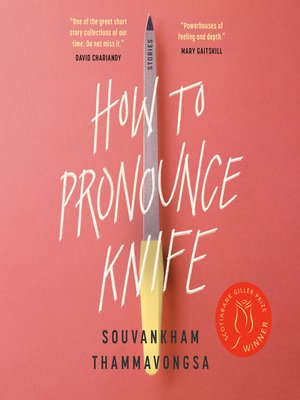

After all, we may not all share the same cultural touchstones, but most of us know what it means to feel out of place, brushed off and excluded. Characters make brief mention of the "bombed-out country in a war no one ever heard of," but they rarely delve into their particular reasons for leaving, and the book contains little about the history, politics and culture of Laos.īy limiting cultural particularities, Thammavongsa steers the reader closer to a general experience of alienation bound up with the immigrant experience. Laos may flow in the bloodstream of these stories, but the Southeast Asian country itself remains an invisible presence, a land that lies half a world away. Throughout the 14 stories collected in How to Pronounce Knife, nearly all of which follow Lao immigrants and refugees building new lives in unnamed towns across Canada, not once do we encounter a character homesick with nostalgia.

It is striking how little time Thammavongsa has for such wistfulness. Many examples of immigrant fiction dedicate a portion of their storytelling to exploring details of homelands that their characters have abandoned-food, rituals, sights and sounds of countries sorely missed. In her powerfully poignant debut collection of stories, Souvankham Thammavongsa illuminates the marginalized lives of Lao immigrants in Canada.


 0 kommentar(er)
0 kommentar(er)
